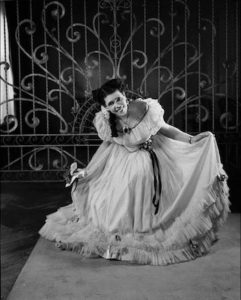
Camille Nickerson
This date celebrates the birth of Camille Nickerson, a Black musician, composer, and administrator, in 1888.
Nickerson was born into a talented Creole musical family in the French Quarter of New Orleans. At nine, she was the pianist for the Nickerson Ladies' Orchestra, directed by her father. She attended Oberlin Conservatory, earning a Bachelor of Music in 1916 and a Master of Music degree in 1932. She was also a member of Pi Kappa Lambda, the national honor society in music. While at Oberlin, she began to compose and publish Creole music.
Her first publication was "When Love is Done." She returned to New Orleans to teach with her father at the Nickerson School of Music. She debuted as a concert artist, playing in cities including Atlanta, Birmingham, and Nashville. Her stage name, "The Louisiana Lady," was enhanced by her genuine Creole dress; audiences in the U.S. and Europe were enthusiastic about her performances.
She also collected and arranged songs to preserve her native culture. Nickerson gave up performing to become part of Howard University's music faculty. She instructed from 1926-1962, retiring as professor emeritus. Her master’s thesis, "Afro-Creole Music of Louisiana," highlighted Creole folk music and the impressive accomplishments of Black musicians in the field.
She was elected president of the National Association of Negro Musicians in 1935. Some of her arrangements include "Lizette," "My Dearest One," "Mister Banjo," and "Dance Baby Dance." Camille Nickerson died in 1982.
The African American Desk Reference
Schomburg Center for Research in Black Culture
Copyright 1999 The Stonesong Press Inc. and
The New York Public Library, John Wiley & Sons, Inc. Pub.
ISBN 0-471-23924-0